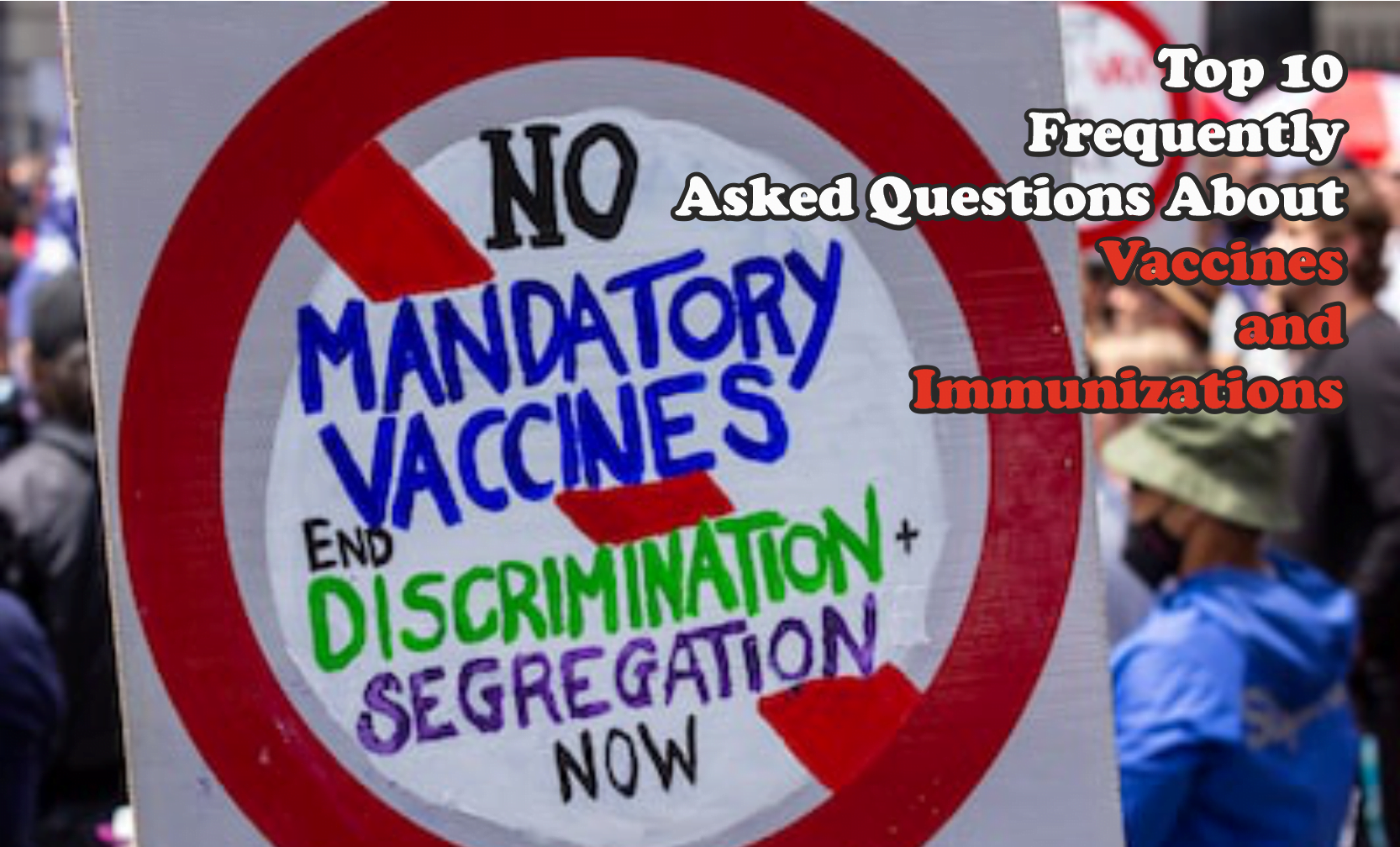Top 10 Frequently Asked Questions About Vaccines and Immunizations
 Top 10 Frequently Asked Questions About Vaccines and Immunizations. Discover the answers to the top 10 frequently asked questions about vaccines, debunking myths and ensuring vaccine safety awareness.
Top 10 Frequently Asked Questions About Vaccines and Immunizations. Discover the answers to the top 10 frequently asked questions about vaccines, debunking myths and ensuring vaccine safety awareness.Top 10 Frequently Asked Questions About Vaccines and Immunizations – indopelita. Vaccines and immunizations play a crucial role in maintaining public health and preventing the spread of infectious diseases.
Dispelling Myths and Providing Accurate Information on Vaccine Safety and Effectiveness
Vaccines and immunizations play a crucial role in maintaining public health and preventing the spread of infectious diseases. Despite their importance, there are still many misconceptions and concerns surrounding vaccination. In this article, we will address the top 10 frequently asked questions about vaccines and immunizations to provide accurate information and dispel myths.
Are vaccines safe?
Yes, vaccines are safe. Before being made available to the public, vaccines undergo rigorous testing and regulatory processes to ensure their safety and effectiveness. Moreover, any potential side effects are generally mild and temporary, and the benefits of vaccination far outweigh any risks.
Can vaccines cause autism?
No, vaccines do not cause autism. Multiple scientific studies have thoroughly debunked the claim that vaccines, particularly the MMR vaccine, are linked to autism. There is no credible evidence to support this claim, and vaccines remain a safe and essential public health tool.
Do vaccines contain harmful ingredients?: Vaccines and Immunizations
Vaccine ingredients, such as adjuvants, preservatives, and stabilizers, are used in small amounts to ensure vaccine safety, effectiveness, and stability. These ingredients have been extensively studied and are deemed safe by regulatory agencies, such as the FDA and the World Health Organization (WHO).
Why do children receive so many vaccines?
The recommended immunization schedule is designed to protect children from various diseases at the most appropriate age when they are most vulnerable. The immune system can safely handle multiple vaccines at once, and receiving vaccines according to the schedule is the best way to ensure protection against preventable diseases.
Can vaccines overload the immune system?: Vaccines and Immunizations
No, vaccines do not overload the immune system. Research has consistently shown that the immune system is capable of handling numerous vaccinations without any adverse effects. In fact, vaccines help to strengthen the immune system by training it to recognize and fight specific pathogens.
Is natural immunity better than vaccine-induced immunity?
Natural immunity occurs when a person is exposed to a disease-causing pathogen and develops immunity as a result. While natural immunity can provide protection against some diseases, it often comes with the risk of severe illness, complications, or even death. Vaccine-induced immunity, on the other hand, offers protection without the risks associated with natural infection.
Can I still get sick after being vaccinated?
While vaccines are highly effective at preventing diseases, no vaccine is 100% effective. In some cases, a person may still get sick after being vaccinated, but the illness is typically milder and less severe than if they had not been vaccinated at all.
Why do adults need vaccines?
Adults need vaccines for several reasons: some vaccines require booster shots to maintain immunity, immunity from childhood vaccines may wane over time, and adults may be at risk for different diseases due to age, occupation, or health conditions. Staying up-to-date on recommended vaccines can help protect adults from preventable diseases.
Can pregnant women receive vaccines?: Vaccines and Immunizations
Certain vaccines, such as the flu and Tdap (tetanus, diphtheria, and pertussis) vaccines, are recommended during pregnancy to protect both the mother and the baby. However, some vaccines should be avoided during pregnancy. It is essential to consult with a healthcare provider to determine the appropriate vaccinations during pregnancy.
How do vaccines protect the community?
Vaccines protect the community through a concept called herd immunity. When a high percentage of a population is vaccinated, the spread of disease is slowed or stopped, providing protection to those who may be unable to receive vaccines due to age or health conditions. This collective protection helps to maintain public health and prevent outbreaks.
Conclusion: Vaccines and Immunizations
In conclusion, vaccines and immunizations are essential tools in maintaining public health and preventing the spread of infectious diseases. By addressing common questions and concerns, we hope to provide accurate information and dispel myths surrounding vaccine safety and effectiveness. It is crucial to stay informed, consult with healthcare providers, and follow recommended immunization schedules to protect ourselves, our loved ones, and our communities from preventable illnesses. Vaccines, immunizations, public health, vaccine safety, vaccine effectiveness, frequently asked questions, myths, misconceptions, herd immunity, vaccination schedule.









No Comments